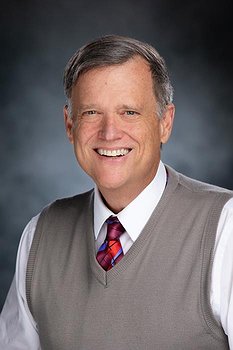STR battle heating back up
COEUR d’ALENE — Two of Coeur d’Alene's elected leaders are unhappy with draft legislation that would limit a city’s ability to regulate short-term rentals.
“It’s always disappointing when state legislators decide that cities and counties need further regulation by the state,” said Mayor Jim Hammond on Wednesday.
Councilman Dan Gookin said cities are in the best position to regulate STRs.
“We like to have our local control,” he said.
Both men were responding to a proposal by District 3 Rep. Jordan Redman, who said it really just clarifies existing statutes and prevents overreach by local governments “trying to take away property rights.”
He said an owner of a home should be able to rent it out for a day or for 12 months.
“I look at it as a property rights issue,” he said.
Redman said cities could still have “reasonable” regulations.
According to the draft legislation, “This act is designed to promote access to short-term rentals and vacation rentals by limiting local governmental authority to prohibit these beneficial property uses, or to specifically target them for regulation, except in circumstances necessary to safeguard public health and welfare.”
It goes on to state, “This act is also designed to preserve personal property rights and promote property owner access to platforms for offering their properties as short-term rentals and vacation rentals, and enhancing local tax revenue by permitting platforms to assume tax collection and remittance responsibilities.”
Gookin said he and Redman had a sometimes-heated phone conversation about the proposal Wednesday.
“If this goes through, people are still going to complain to the city (about STRs)," Gookin said.
He said the legislation would prevent cities from regulating STRs, such as the number of days a home could be used as one, how many could be on a block or even regarding street parking.
The city began looking to crack down on STRs a few years ago. Some residents complained they were adversely affecting neighborhoods due to noise, trash, and vehicles and RVs parked in streets, as well as strangers walking around.
Last year, the city estimated it had roughly 1,000 vacation rentals, with fewer than half of them legally permitted.
The city considered, but did not enact, a one-year permit cap on STRs and fines of up to $5,000 for illegally operating one.
The CDA-Vacation Rental Alliance came out against those proposals. It said then the livelihoods of local residents who own most of the STRs "have the potential to be destroyed by this misguided government overreach."
In November 2022, the City Council approved an agreement with Granicus, based in St. Paul, Minn., for short-term rental host compliance services.
Gookin said he told Redman that regulating STRs is a local issue and the city is trying to protect residents from having too many of them.
“We’re trying to preserve neighborhoods," he said. "When you have STRs, you don’t have neighbors."
He said STRs impact the housing supply and create a lack of long-term affordable housing.
Gookin said if the legislation proposed by Redman ultimately passes, it would mean the city could do nothing about the growth of STRs.
He said the argument of private property rights goes both ways.
“Your neighbors have rights, too,” Gookin said.
He said too often the focus is on making money with property at the expense of contributing to a neighborhood, where longtime residents are invested.
"Property rights are not absolute,” Gookin said.
Hammond said efforts to regulate STRs "ensure the safety of the occupants, peace and security of the neighborhood; protection of homeowners from finding their homes, their biggest investment, surrounded by mini-hotels. And possibly opens more homes for families seeking to live in the city."
Redman said his proposed legislation does not prevent any local oversight. It says “short-term rental properties and owners would be subject to all other county and city ordinances and penalties which apply to other residential uses including but not limited to noise, parking, nuisance, curfew traffic and similar regulations.”
“Nothing with this bill would change what they're doing now,” he said.
Gookin said he hopes people will contact their legislators and let them know they want local control of STRs.
Redman said the legislation could get a hearing before the business committee next week.





